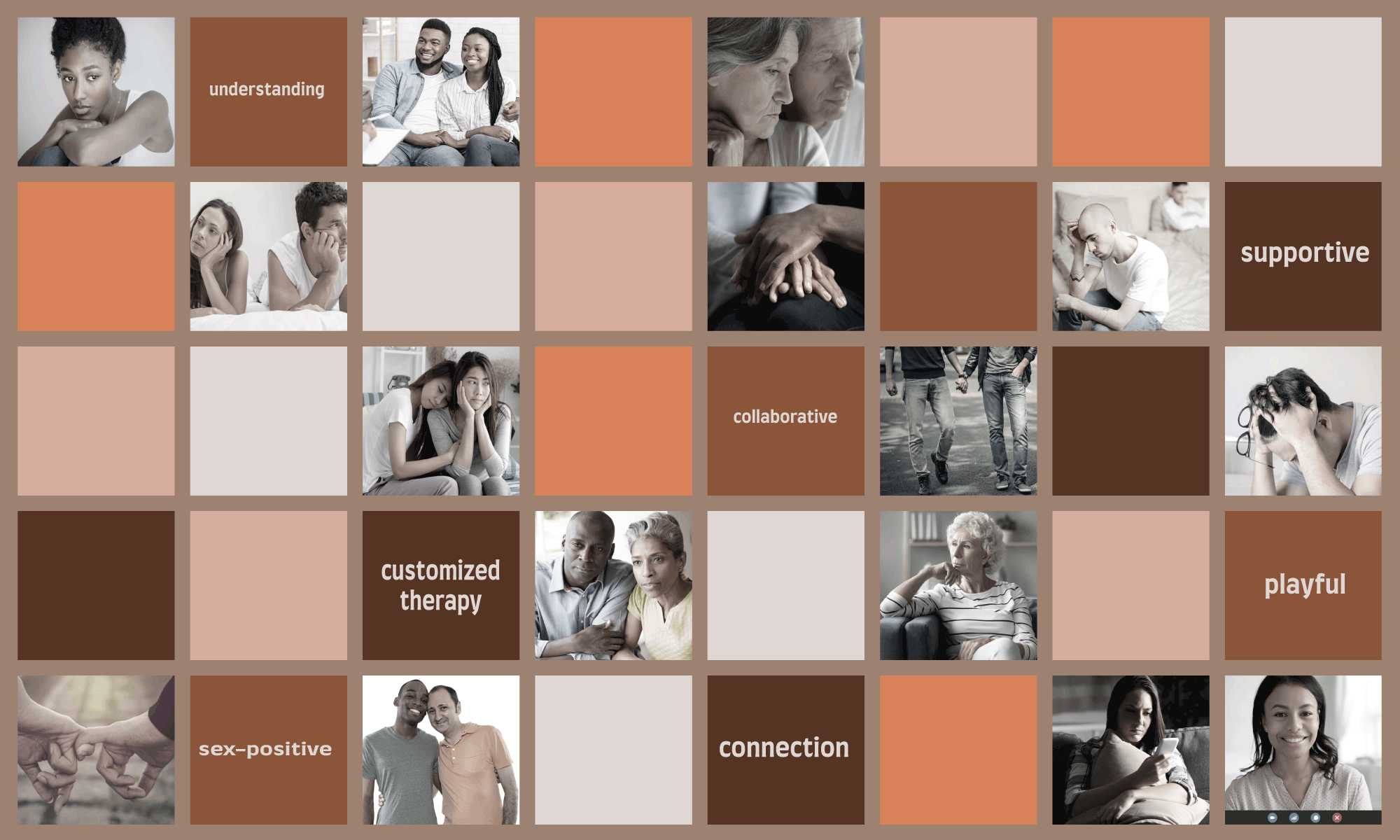Couples Therapy
Do You Ask Yourself…
Why am I in a constant battle with my partner on important issues? Why can’t we make a decision together?
Why do I feel like I am in this partnership/marriage alone? Why does it feel as though my partner is never here for me?
Is it possible to enhance the intimacy of my relationship? What exercises can my partner and I practice to ensure that we cultivate and maintain this essential quality?
How can I best navigate the dating world, especially in this time of Covid-19? Is there a right and wrong way handle my behavior and expectations?
I am thinking about getting married and/or moving in with my partner. What preparation and steps can we take to optimize the chances of this working out for both of us?
I cannot even remember the last time my partner and I had sex. How can I talk to my partner about this and try and make things better?
I just learned that my partner cheated on me. How can we ever get past this?
I am about to get married. With a divorce rate between 40 and 50 percent, what can my partner and I do to ensure that our marriage will succeed?

“The surprising finding is that our relationships and how happy we are in our relationships has a powerful influence on our health,” reported Robert Waldinger, psychiatrist and a professor of psychiatry at Harvard Medical School. Dr. Waldinger made this statement at a wildly popular TED talk titled “What makes a Good Life?,” in which he discussed key findings from one of the most enduring and reputable studies on adult happiness, the 80 year old Harvard Study of Adult Development.
•••
For something so central to our well being, so often the health of our relationships is not given the attention it deserves. Just as we work hard to stay in shape or learn a new skill, relationship investment is a form of self care. An insurance policy for a better future.
My goal as a couples therapist is to work with couples confronted by difficult issues, as well as strengthen the bonds of those couples who are in a more even keeled/happy relationship.
Sessions are spent working on creating better understanding, improving communication methods, decision making, and empathy. The goal is to create positive change that will have a lasting impact on you and your partner.
Recovering from Infidelity
Why does it take infidelity to get us talking about the stuff that should be there from the start?” Esther Perel, Psychotherapist, Podcaster and Author
According to statistics, in roughly one out of two marriages, one member of the couple had been unfaithful. Unsurprisingly, infidelity is often a dealbreaker and the cause of many a traumatic divorce. Yet, couples need not break up if there is a willingness to preserve the relationship and, importantly, a willingness to do the work.
According to Dr. Perel and other marriage counselors, “…couples that choose to recover and rebuild after infidelity often end up with a stronger, more loving and mutually understanding relationship than they had previously.”
Recovery from infidelity is an issue for which I have targeted training.
While I see many of my client couples individually, I also conduct group therapy on this issue. Many of my clients benefit from the empathy, support and camaraderie that emerge from working through this issue with others in a similar situation.
Whatever conduit you choose–individual or group–we will focus on healing and moving forward in a healthy, positive direction that will allow for a stronger and more resilient foundation for your relationship.
